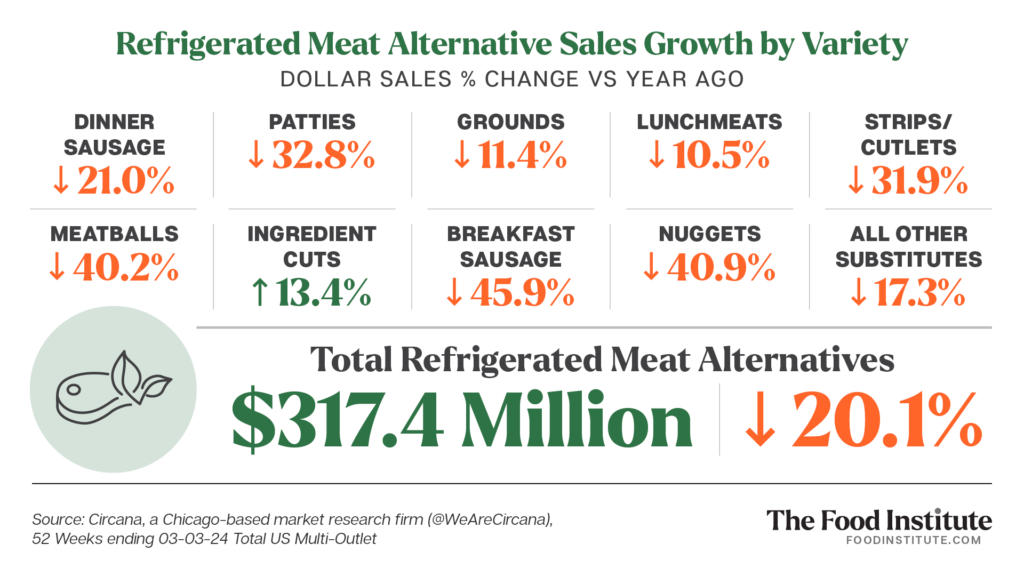Your hot dog has a new first name, it’s A-L-T-M-E-A-T…
Last week, The Kraft Heinz Company unveiled plant-based hot dogs and sausages under the Oscar Mayer brand. The new offerings — NotHotDogs and NotSausages in Bratwurst and Italian flavors —are the first alt-meat products the CPG giant has rolled out through its joint venture with NotCo, a Chilean food-tech company that leverages AI to produce plant-based alternatives.
Other recent launches by The Kraft Heinz Not Company include KRAFT NotMac&Cheese and KRAFT NotCheese Slices.
“We know fans have been waiting for plant-based versions of our Oscar Mayer products since we first announced the joint venture in 2022,” Lucho Lopez-May, CEO of The Kraft Heinz Not Company, told The Food Institute. “With [this] launch…we were able to create delicious products and fulfill an unmet consumer need in the category, which was important to us.”
As grilling and baseball season approaches, will consumers hit the deck, turn on the gas, and scorch some NotHotDogs to summery perfection? Perhaps, if the taste, texture, and mouthfeel mimic the classic dog.
Why Launch Now?
The rollout comes as sausage alternatives sales continue to struggle at retail — along with most of their alt-meat counterparts.
Per Circana, dollar sales for refrigerated dinner sausage alternatives were down 21.0% year-over-year in the 52 weeks ending March 3, with volume sales trailing 23.6%.
There is currently no targeted sales tracking in the Circana-measured marketplace for refrigerated hot dog alternatives.
Issues with consumer adoption include price point and general dissatisfaction with taste and texture. The category’s challenges have been exacerbated by ongoing inflationary pressure as consumers continue to opt for more affordable meal solutions.
This confluence of challenges is causing food-industry analysts to question the timing of the alt-meat launch.
“Consumers have largely traded back down to animal proteins,” John Oh, an analyst with the global research firm Third Bridge, told MarketWatch.
Cost comparisons suggest the newly launched products will not be immune to shopper’s budget cuts. The current price point for traditional Oscar Mayer bun-length hot dogs is $4.99 for an eight-pack, while the plant-based variety costs $5.99 for a four-pack, marking a price differential of 88 cents per frank.
“There would probably be more consumers willing to trade up if they delivered that taste, texture, and mouthfeel,” added Lynn Dornblaser, principal consultant with Mintel, in the same article.
Eyeing the Plant-Based Long Game
Despite the tumultuous state of the plant-based meat market, Kraft Heinz is optimistic that they have unlocked long-term recipes for success.
“Plant-based is still one of the fastest growing segments in food and we believe the momentum will continue,” said Lopez, adding that the U.S. plant-based market is projected to spike from $8.3 billion in 2023 to $19 billion by 2030.
By utilizing AI-driven innovations for product research and development and leveraging the legacy brand power of Oscar Mayer, Kraft-Heinz believes NotHotDogs and NotSausages will achieve mainstream adoption and draw more flexitarian consumers into the category.
“We know flexers are hungry for plant-based offerings that deliver on things like taste, texture, variety, and availability,” Lopez said. “In fact, research tells us that 61% say they are interested in plant-based hot dogs and sausages, but only 22% have actually tried them.”













